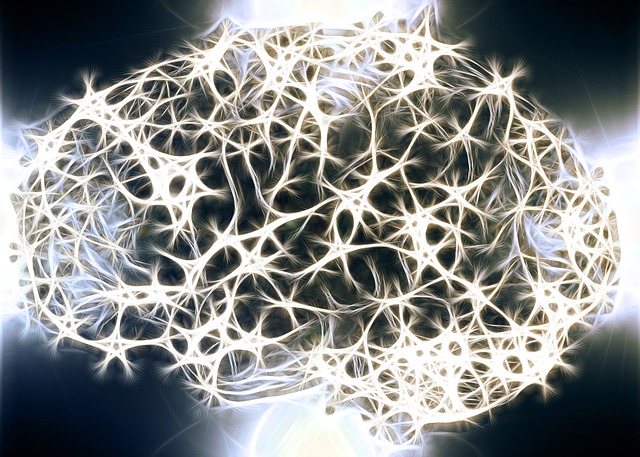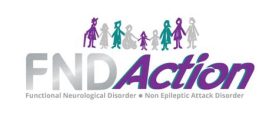FND – Functional Neurological Disorder
FND is a condition which affects the nervous system, by interrupting how the brain and body interact.

What is Functional Neurological Disorder?
- Functional neurological disorder is often referred to as FND. It is related to a problem with how the brain and body send and receive information.
- It might be helpful to think about the brain and body like a computer. With FND, there is no hardware or structural damage to the brain and body, it is the way the body is sending and receiving signals that has been affected. For example, like if a computer software glitches.
- FND is one of the most common reasons for referrals to neurology services, it affects many people through-out the UK and the world. However there is still a lot more research, understanding and support that needs to be put in place for FND patients and their carers.
Useful Links

Acknowledgements to individuals from the Keeping Me Well Co-production Forum who have co-produced this information.
Symptoms
FND is a very individual condition, where people can present with a variety of different symptoms.
FND symptoms may include:
- Difficulty moving all or different parts of the body (including weakness of muscles)
- Difficulty with walking and balance
- Shaky movements, (sometimes these are called ‘Functional Tremors’) or uncontrolled movement in any part of the body
- Brain fog, (including poor concentration, confusion, fuzzy thinking)
- Word finding difficulties
- Difficulty in processing details and tasks, (For example, difficulty doing more than one thing at a time, being overloaded with information)
- Short-term to long-term memory loss
- Affecting someone’s vision (including, blurry vision, double vision, functional blindness)
- Sensitivity to sound, light, touch, taste and smell
- Difficulty with speech
- Experiencing pins and needles or numbness
- Chronic pain or pain in certain parts of the body
- Fatigue, (here is further information about management of ‘Fatigue’)
- Severe headaches or migraines, which can affect someone’s mobility, balance and vision.
- Seizures (not related to epilepsy, sometimes called ‘Functional Seizures’)
- Changes to how your bladder and/or bowel functions
- Health anxiety, worry and anxiety
- Dizziness, nausea and sickness
- Difficulty with swallowing and sometimes breathing problems
FND
A condition which affects the nervous system, by interrupting how the brain and body intact.
Possible Triggering Event
- Injury
- Panic Attack
- Migraine
- Neurological Illness
- Head Injury
Predisposing Factors
- Functional disorders e.g. pair syndrome, irritable bowel
- Neurological conditions
- Anxiety and / or stress
- Stressful life events
- Childhood adversity

Conditions people often live with alongside FND
- Depression
- Post Traumatic Stress Disorder
- Avoidance
- Anxiety
- Immobility
Factors that make the condition persist
- Feeling disbelieved
- Medical uncertainty or misdiagnosis
Treatment
Understanding of the disorder
Rehabilitation
Occupational Therapy
Speech and Language Therapy
Physiotherapy
Psychological Therapy
Treatment of conditions that people often live with
Causes
Diagnosis


- A diagnosis of FND is often made by a neurologist. Your GP can refer you to a neurologist, if you are experiencing FND symptoms, including seizures or other FND symptoms.
- It may feel a bit difficult and challenging when you hear that you have FND or likely have FND, as it can bring up a lot of emotions. It might be helpful to know that there are support groups available through FND Hope UK.
- Being diagnosed with FND might feel a little confusing or even difficult to accept, as there is not as much research and understanding of this condition.
- Sometimes getting diagnosed can bring up similar feelings to grief, including fear, anger, sadness, hope and acceptance. It is completely natural to feel unsure of your diagnosis or even maybe a little confused. Here is more information about the different stages of grief and dealing with a new diagnosis- FND Action.
Treatment
- FND is not a progressive condition, and getting timely and effective support can help to manage the symptoms and help with your recovery.
- Cardiff and Vale University Health Board does not have a dedicated service for FND, but individuals living with the condition can access services that may support and investigate specific symptoms. For example, a GP can refer you to be supported by a Speech and Language Therapist
Extra Advice and Support
- In Wales at the moment, there is limited medical support which provides help for people with FND. However your GP or neurologist may be able to refer you for medical care/advice and support within different parts of England, including Bristol and London.
- If you require any further support or are struggling in any way with FND, you can always contact FND Hope UK. FND Hope UK is a volunteer-led charity who support many young people and adults experiencing functional neurological disorder across the UK.
Hints and Tips
Contact your local GP to see if you can be referred for specialist support, including being seen by a neurologist.
(Note: for further support, you can always ask for a second opinion from another GP if required).
- You can be part of FND Hope UK support groups or attend online sessions, including activities like Art, Dance, Yoga, Pilates, Mindfulness, and more
- There are also other support charities and organisations which support people with FND, including
 The ‘myFND app’ provides tips and strategies to help potentially reduce FND symptoms or anxiety around having the symptoms, as well as creating a daily and weekly journal of the FND symptoms. The journal on the ‘myFND app’ can be useful to show to your doctor or neurologist, to see if there are any patterns or any triggers that might be causing the FND symptoms to worsen.
The ‘myFND app’ provides tips and strategies to help potentially reduce FND symptoms or anxiety around having the symptoms, as well as creating a daily and weekly journal of the FND symptoms. The journal on the ‘myFND app’ can be useful to show to your doctor or neurologist, to see if there are any patterns or any triggers that might be causing the FND symptoms to worsen.
It can also be helpful to journal your feelings and experiences of FND symptoms, and to notice if there are any specific triggers that might cause flare ups of FND symptoms. Once you have spotted any triggers that might be making the FND symptoms worse, you might be able to avoid these triggers (or at least manage them).
For example, some people might get warning signs that certain symptoms, such as seizures, are approaching and the warning signs can help the person to manage the seizure or even prevent it from happening.
For more information, here is further support with journaling and monitoring FND symptoms, Walton Centre, and ‘FND Formulation Tool’.
Using grounding techniques can be helpful in managing symptoms of FND.
It can take a bit of practice, to learn to notice signs of symptoms/triggers and how and when to use grounding techniques, but grounding can be a really useful tool. More information on what grounding is and how to use grounding techniques can be found at grounding techniques from FND Hope UK and taking control of your functional neurological symptoms from the Walton Centre.
 Checking in with your FND symptoms, it might be helpful to check in with your energy levels and monitor how you are feeling regularly during the day. For example, you could think of your energy similar to a phone battery. Some days you have more energy than other days. When your energy is low, this is a sign that your body and mind may need more rest, which could be mental, emotional, social and physical rest. It is also important to think about your energy just like a phone battery that might be faulty or need to have top up of ‘charge’ through-out the day. This could mean that you need to have regular rests and breaks during the day, to help increase your energy levels, which could potentially help reduce fatigue or FND symptoms. Here is further information about pacing.
Checking in with your FND symptoms, it might be helpful to check in with your energy levels and monitor how you are feeling regularly during the day. For example, you could think of your energy similar to a phone battery. Some days you have more energy than other days. When your energy is low, this is a sign that your body and mind may need more rest, which could be mental, emotional, social and physical rest. It is also important to think about your energy just like a phone battery that might be faulty or need to have top up of ‘charge’ through-out the day. This could mean that you need to have regular rests and breaks during the day, to help increase your energy levels, which could potentially help reduce fatigue or FND symptoms. Here is further information about pacing.
Useful Links

Acknowledgements to individuals from the Keeping Me Well Co-production Forum who have co-produced this information.

